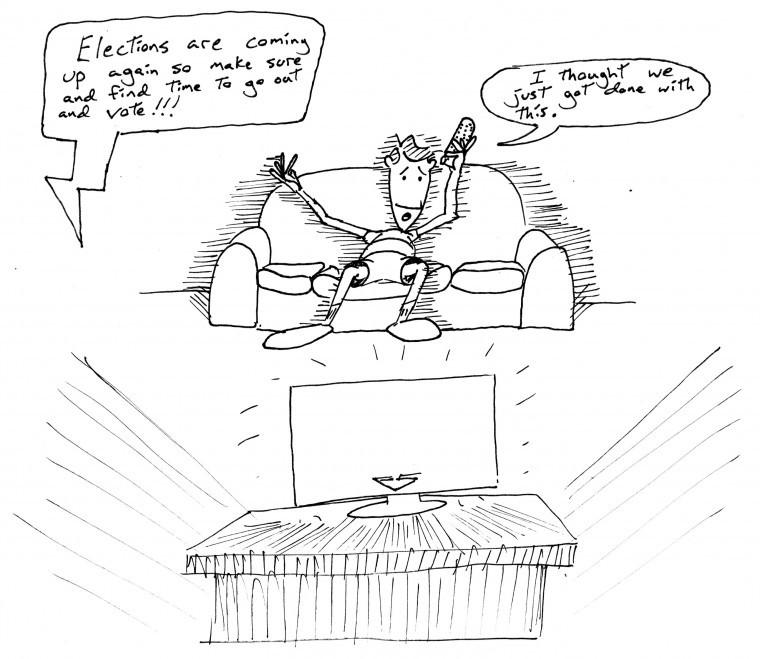Should we regulate election campaigns? Yes.
November 17, 2010
If you watched the election results, you probably heard every political analyst asking one question: what does this mean for 2012?
While I will certainly be following the presidential elections, I think it is a little early to conjecture about what the political landscape is going to be in two years. America’s relentless election cycle lends itself to a strategic farsightedness and unpredictable political climate that ultimately detracts from politicians’ focus on getting things accomplished.
Instead of working toward the reformative achievements that they had campaigned on, candidates shift the focus toward what unspeakable horrors their opponents would unleash if they were elected.
The same goes for the recent, and probably future, presidential campaigns. Instead of establishing a clear, cohesive platform, candidates are more likely to spout off vague rhetoric to avoid taking a stance on divisive issues.
The reason that these strategies are becoming so commonplace is because they are safer political moves. The political climate is so fickle that identifying the opposition as an enemy through blatant caricaturization is safer than running on specific goals and stances.
In 2007, CBS News cited a poll in which nine out of 10 Americans thought that health care needed “at least fundamental changes.”
Now, after Obama’s Health Care Reform Bill has passed, American sentiment has supposedly changed so drastically that Republicans are planning to campaign on attempting to repeal the bill.
This is because elections always seem to be right around the corner and what may have been a historic victory a few months ago could very well be misconstrued by the 24-hour news cycle and mutated into an attack on voters’ civil liberties by November.
From an electoral standpoint, it is more effective to elicit voter outrage than it is to promote understanding of why things are going wrong and how they can be addressed (hence, the barrage of smear campaigns and threats of impeachment).
One way to address this would be to put a timetable in place for when it is reasonable to air campaign advertisements or accept large political donations. This would ensure that our politicians are worried about more than just getting re-elected.
Before you assume that this is all part of my liberal agenda, it is worth noting that one notable conservative agrees with me. In December of 2007, the Wall Street Journal published an article titled “The Endless Campaign” written by Karl Rove.
In the article, Rove bemoans the fact that America has “the longest leadership selection contest in the democratic world” and agrees that the media is partly to blame.
Rove explains that since a nine-month political campaign can bore even the most devout political junkies, journalists demand that candidates say something new or controversial to spark interest.
“The result of all this is that we’re putting pressure on candidates to act in ways that have nothing to do with how well they will govern,” Rove writes. “The purpose of a campaign ought to be the opposite.”
I never thought I would say this, but here it goes. Well said, Mr. Rove (even if you were writing it after Democrats had taken the House and Senate and were primed to win the presidency and have not complained about it again since the tables have turned).



